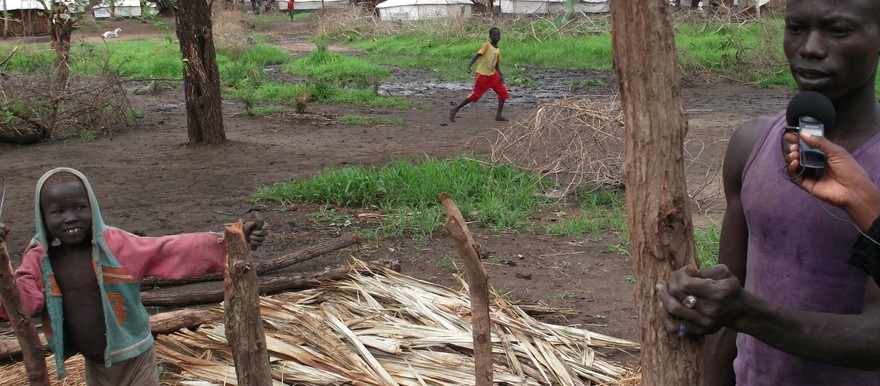Youths from Maban County in South Sudan’s Upper Nile State have given the Blue Nile refugees in several areas an ultimatum to leave within 24 hours or else they will resort to other means. The county commissioner intervened to extend the ultimatum to two months.
This development comes after recent skirmishes between the refugees and the host community in the past weeks. The county accommodates more than 120,000 refugees who fled fighting between the Sudan Armed Forces and SPLA-North in Blue Nile since 2011.
Speaking to Radio Tamazuj, the paramount nazir of the Blue Nile tribes in Maban County, Alim Moun Jabir, said they were facing security challenges and differences with the host community involving accusations of stealing and cutting down of trees.
“The host community banned cutting down of trees while the refugee are in need of timbers to build their houses which are about to collapse,” he said.
The tribal leader explained that youths of the host community had demanded UNHCR to evacuate the refugees from the county within 24 hours.
It is more likely, however, that instead refugees from the most tense camps such as Yusuf Batil and Jendrassa will be moved to other camps within the county. Otherwise they would have to cross east into Blue Nile or Ethiopia.
Relocations of this kind would affect tens of thousands of people. According to Jabir, the county commissioner succeeded in extending the deadline set by the host community until May.
Jabir added, “We did not come to Maban to grab the land, so we don’t want to create any problem with the host community. We just came as refugees. During our stay here we also contributed a lot to the development of the county.”
“I call on Maban youth to cancel their decision and protect us instead of fighting us,” he added. Jabir said the two months deadline by the commissioner is not enough time for the UN organizations to relocate the refugee camps.
Education decline
In other development, nearly 4,000 young children of Blue Nile refugees who are currently living in Bambasi camp in Ethiopia reportedly do not have access to schooling.
Aboud Al Nur, an omda in Bambasi camp told Radio Tamazuj they don’t have the first year in their schools. “In the camp we have P2 up to P7 – all the children who are supposed to be enrolled in P1 are not being accepted,” he explained.
He attributed the problem to indifference by the organizations working in the field of education in the camp.
File photo: A refugee from Blue Nile building his house in Maban County, 2012 (Radio Tamazuj)



